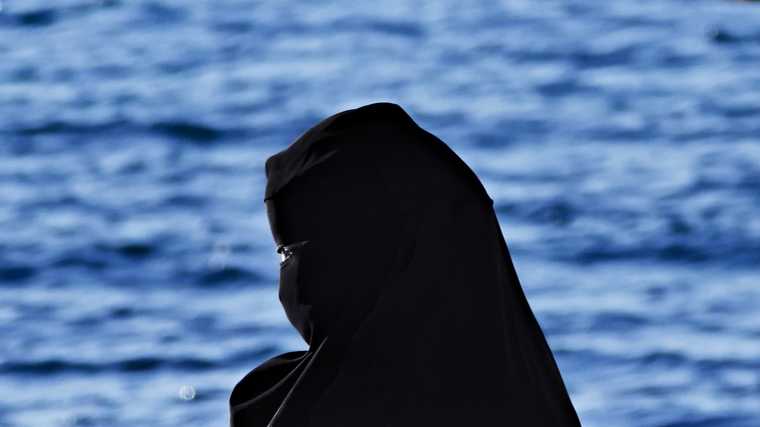By: V4 Agency
An author who delivered literary workshops to students living by the rules of Islam says the introduction of a national integration programme could provide a solution to the growing problem.
The case of Didier Lemaire, the mortally threatened French philosophy teacher, continues as Omar Youssef Souleimane, a writer of Syrian descent, has recently shared his own experiences that appear to bolster the threatened professor’s views.
At the end of 2020, Souleimane held some writing workshops with professor Didier Lemaire in Lemaire’s secondary school in the town of Trappes. The writer told the French weekly L’Express about his experiences and touched on the issue of strong communitarianism seen in suburban schools, among other things. He recalled that when he asked students about who was going to celebrate Christmas and New Year’s Eve, he received an unequivocal answer: no one. The students explained that they, as Muslims, do not observe these holidays, adding that their views are the same regarding 14 July, France’s national holiday and Victory Day. According to Souleimane, these students feel different because their religion is incompatible with France.
The writer went on to explain that these students have never seen a play, nor have they been to a movie theatre or a museum. Many young Muslim girls put on their veils as soon as they leave the school building, some of them even keep their veils close by in the classroom.
Souleimane said that after one workshop, he asked students if any of them believed in fate. The majority replied that their fates were already written somewhere and there was nothing they could change, which is interesting, because fate is a central theme in Islam.
Didier Lemair, the teacher who began receiving death threats last November, also attended the workshops delivered by Omar Youssef Souleimane. Lemaire told him that some students considered themselves foreigners in France. Souleimane spotted some Arabic writing on the walls where his workshops were being held, and explained that it was in fact a prayer that has no place French public schools.
According to Omar Youssef Souleimane, this type of community spirit is not only present in the secondary schools of Trappes. The author has also noticed and indentified the phenomenon in many suburban schools around Paris, where he gave similar classes and lectures. He recalls when one of his female students explained how she believes that jihad is not always negative, and that not all jihadis are bad people.
Souleimane told the students his own story, explaining that he was a Salafist as a young man. He said in 2011, at the time of the 9/11 terrorist attacks, he was the same age as the students; he listened to Osama Bin Laden’s speech with great enthusiasm and he accepted and identified with al-Qaeda’s ideology. He said he was planning to carry out a terrorist attack just to reach paradise, and then he talked about his transformation and how he overcame radicalisation with the help of literature and philosophy. The students were shocked when he told them that he was no longer a believer but an atheist because, for Muslim students, Islam is not just a religion, but an identity.
By his own admission, Souleimane never thought he would experience the type of Islamist radicalisation which forced him to flee Syria, in France. He says the underlying reason for this gap, or divide, lies in the fact that some immigrants from North African countries have lived in France as strangers since the 1970s. They have been completely isolated, feeling that they do not belong to the country and it’s this divide that’s led to the formation of the separation process we can see today. Some third generation immigrants live in a controversy: on the one hand their families tell them that they are Arabs, while schools teach them that they are, in fact, the children of the Republic.
According to Omar Youssef Souleimane, this increasingly serious problem could only be resolved through a national integration programme which includes cultural activities and debates. This would be the only way to make third-generation Muslim youth feel like they too belong to the French Republic, he opined.

